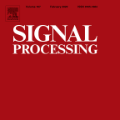Among the several paradigms of artificial intelligence (AI) or machine learning (ML), a remarkably successful paradigm is deep learning. Deep learning's phenomenal success has been hoped to be interpreted via fundamental research on the theory of deep learning. Accordingly, applied research on deep learning has spurred the theory of deep learning-oriented depth and breadth of developments. Inspired by such developments, we pose these fundamental questions: can we accurately approximate an arbitrary matrix-vector product using deep rectified linear unit (ReLU) feedforward neural networks (FNNs)? If so, can we bound the resulting approximation error? In light of these questions, we derive error bounds in Lebesgue and Sobolev norms that comprise our developed deep approximation theory. Guided by this theory, we have successfully trained deep ReLU FNNs whose test results justify our developed theory. The developed theory is also applicable for guiding and easing the training of teacher deep ReLU FNNs in view of the emerging teacher-student AI or ML paradigms that are essential for solving several AI or ML problems in wireless communications and signal processing; network science and graph signal processing; and network neuroscience and brain physics.
翻译:在人工智能(AI)或机器学习(ML)的几种范式中,一个非常成功的范式是深层次的学习。深层学习的惊人成功希望通过深层学习理论的基础研究来解释。因此,深层学习的应用研究激发了深层学习的深度和广度发展理论。受这些发展的影响,我们提出了这些根本问题:我们能否使用深修的线性单元(RELU)向神经网络进料(FNNS)来准确估计任意的矩阵-矢量产品?如果是这样的话,我们能否约束由此产生的近似错误?根据这些问题,我们在Lebesgue和Sobolev的规范中得出了错误界限,这包括我们所开发的深度近似学理论。根据这一理论,我们成功地培训了深深层的RELU FNNS,其测试结果证明我们发达理论是正确的。发达的理论也适用于指导和放松教师深深线性单元(RELU FNNS)的训练。鉴于新出现的教师-学生AI或ML范式对于解决无线通信和信号处理中的若干AI或ML问题至关重要;网络科学和图像处理;以及网络的神经物理学和脑物理学和脑物理学。




